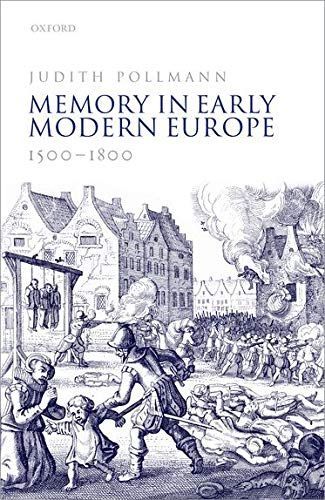
Memory in Early Modern Europe, 1500-1800
In Memory in Early Modern Europe Judith Pollmann offers an introduction to the way in which Europeans on the Continent and in the British Isles practised memory in the three centuries between 1500 and 1800. In early modern Europe the past served as a main frame of moral, political, legal,religious, and social reference for people of all walks of life. Because it mattered so much, it was also hotly contested, and subject to constant reinvention. Building both on existing studies and new primary research, the first aim of this book is to account for the omnipresence, importance, andchanging uses of the past among early modern Europeans. Its second aim is to situate early modern memory more clearly in the memory studies field, and to show how relevant a better knowledge of early modern memory is to students and scholars who study the role memory practices in modern societies. Many scholars have argued that the Age of Revolutions at the end of the eighteenth century completely transformed the way in which Europeans experienced the past and came to think about the future. Memory in Early Modern Europe demonstrates that while some memory practices had indeed profoundlychanged by 1800, the emergence of new ways of engaging with the past was a more gradual process and did not put an end to traditional ways of thinking about it; rather, old and new ways came to exist side by side, and, to a surprising extent, continue to do so to our own day.